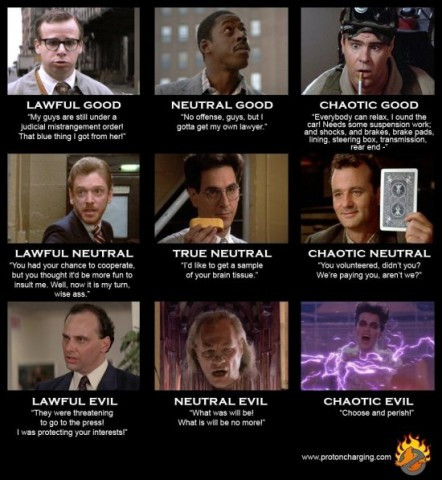
I was chatting about Pathfinder over IM with a coworker this afternoon, and we got onto why we've both wanted to get more into tabletop RPGs. "I love rules," my friend typed, and then he added, "constraints".
I've seen people characterize this type of game by the huge amount of rules that are involved. And it's true, to become truly immersed in game play means buying more books than the typical college student. And if memory serves me correctly, they read a lot like textbooks, too. (Again, why I really like the writing and presentation in the Pathfinder Beginner Box. It's much more conversational and approachable than my previous experience with AD&D.) Really boil it down, though, and the rules are really a way of defining all of the elements of the game, including its constraints, rather than the instructions in most games that tell you what to do and how to play. Sure, there are some introductory processes that guide you through creating characters and starting your first adventure, and there are some procedural elements throughout the game, but for the most part, the rules don't tell you how to play the game. The Game Master (GM) and the Player Characters (PCs) decide that for themselves.
We have a running joke at work (not much of a joke, really) that the majority the specifications in data-driven projects come after the words "except when". Projects are generally easy to start, but get bogged down as they near completion due to ever-growing lists of exceptions. So you can being to see why we'd find a game system full of constraints is actually refreshing.
True, there are some players out there who seem to thrive on quibbling about every detail of the rules. They seem to get more enjoyment from winning arguments and being right than actually playing the game. I don't believe that's what it's all about. Instead, getting in and learning about the rules helps you understand the game world, and the fact that you're free to do anything you can possibly image within those constraints. It's not uncommon for the PCs to go off and do something completely different than what the GM had planned for them, and while sometimes this means the GM has to take a nice long restroom break to go figure out what to do next, the rules are designed to allow this to happen without completely breaking the game.
It's the job of the GM to lead the PCs through this set of constraints for an enjoyable adventure. The comment about constraints is relevant to me, because we're already pushing well past the constraints of the Beginner Box and looking at more and more of the rules in the Pathfinder RPG Reference Document. Since the GM has the final say about a lot of things, I've decided I'll allow for any rules found in the PRD as long as they don't slow the game down from me having to find and research rules about things I haven't encountered yet. So far, it seems like that will work out fine.
Now if I could only get those kinds of constraints into the project management aspects of my day job! I know I'm already trying. I sent an email today to people on three different committees, outlining decisions that need to be made for a project I'm working on. I laid out three very specific questions and made it clear that answers should limited to the specifics of those three decisions so the project can move forward. I know I'll have to work hard to keep people focused to get answers to these questions, because this part of the project touches several areas with broader implications, and this part of the project will probably have to change again after other areas are resolved. But none of that changes the fact that I need to complete the task at hand, and I need consensus from these groups before I can do that.
Unfortunately, the real world doesn't give me the kind of authority a GM has. And I can't just pull out a melee weapon and start hacking on people, either. I guess I'll just have to hope I can roll my diplomacy check and get through that way. Maybe I should start bringing a d20 to meetings, just in case.